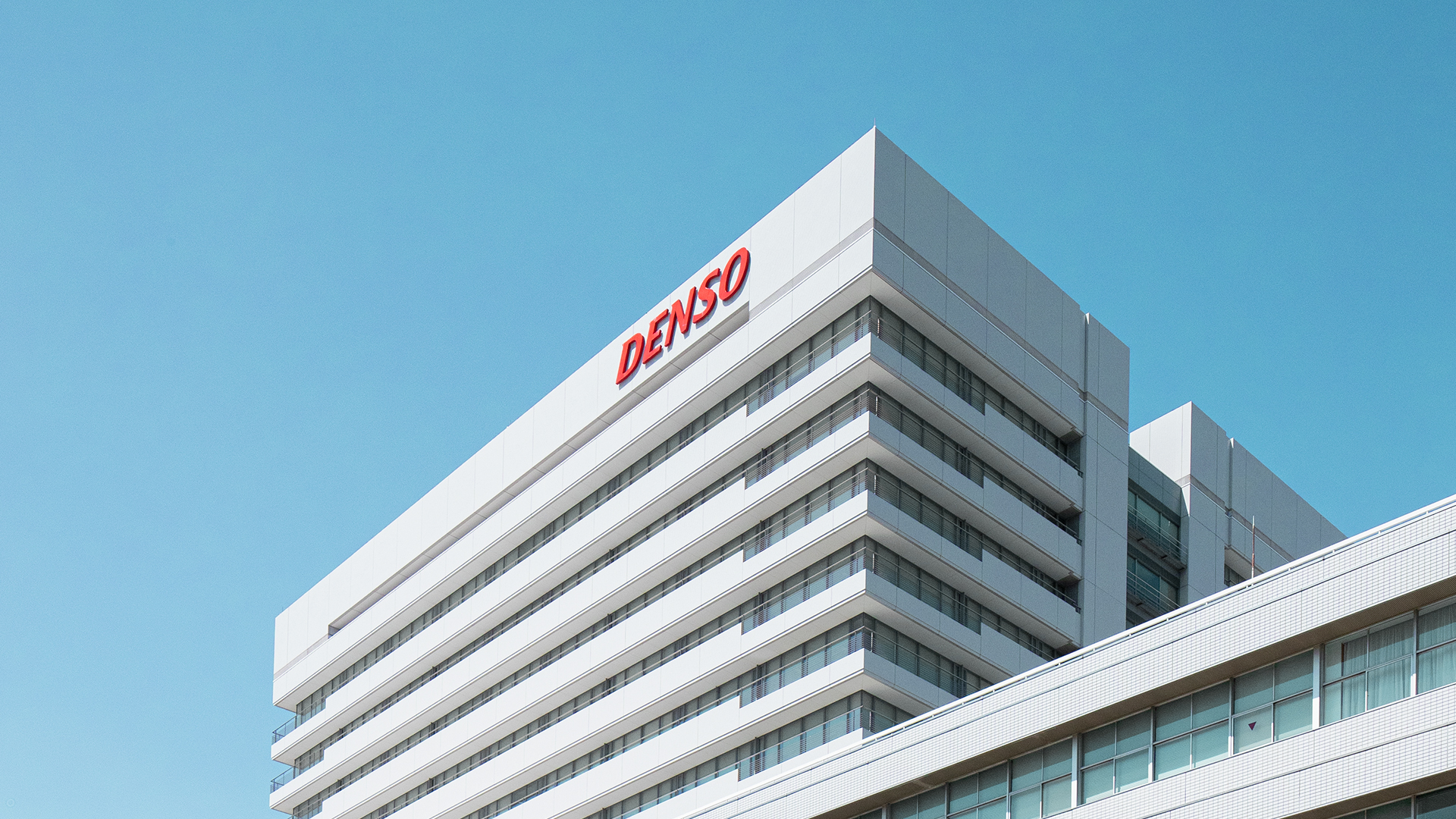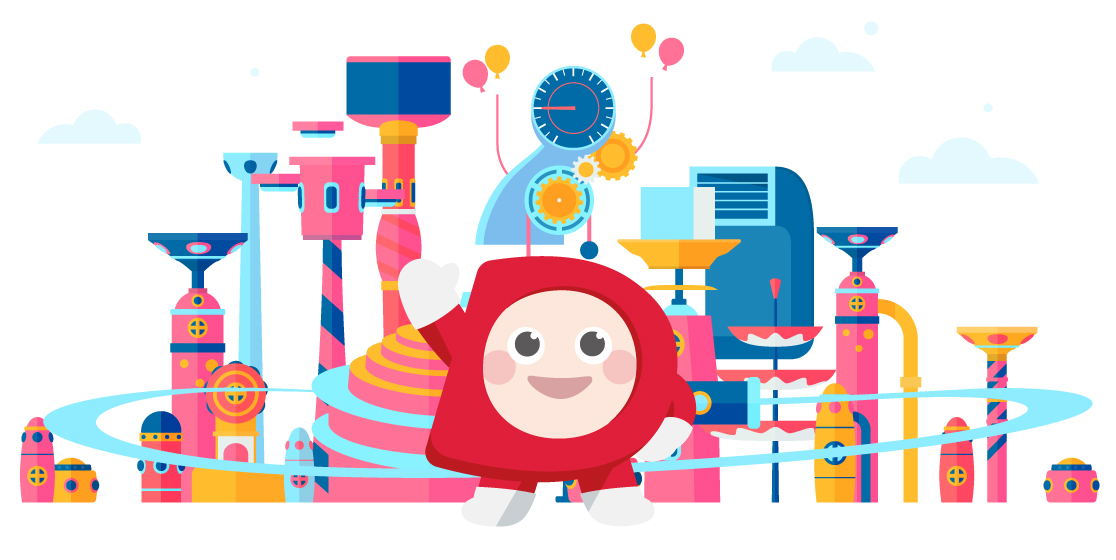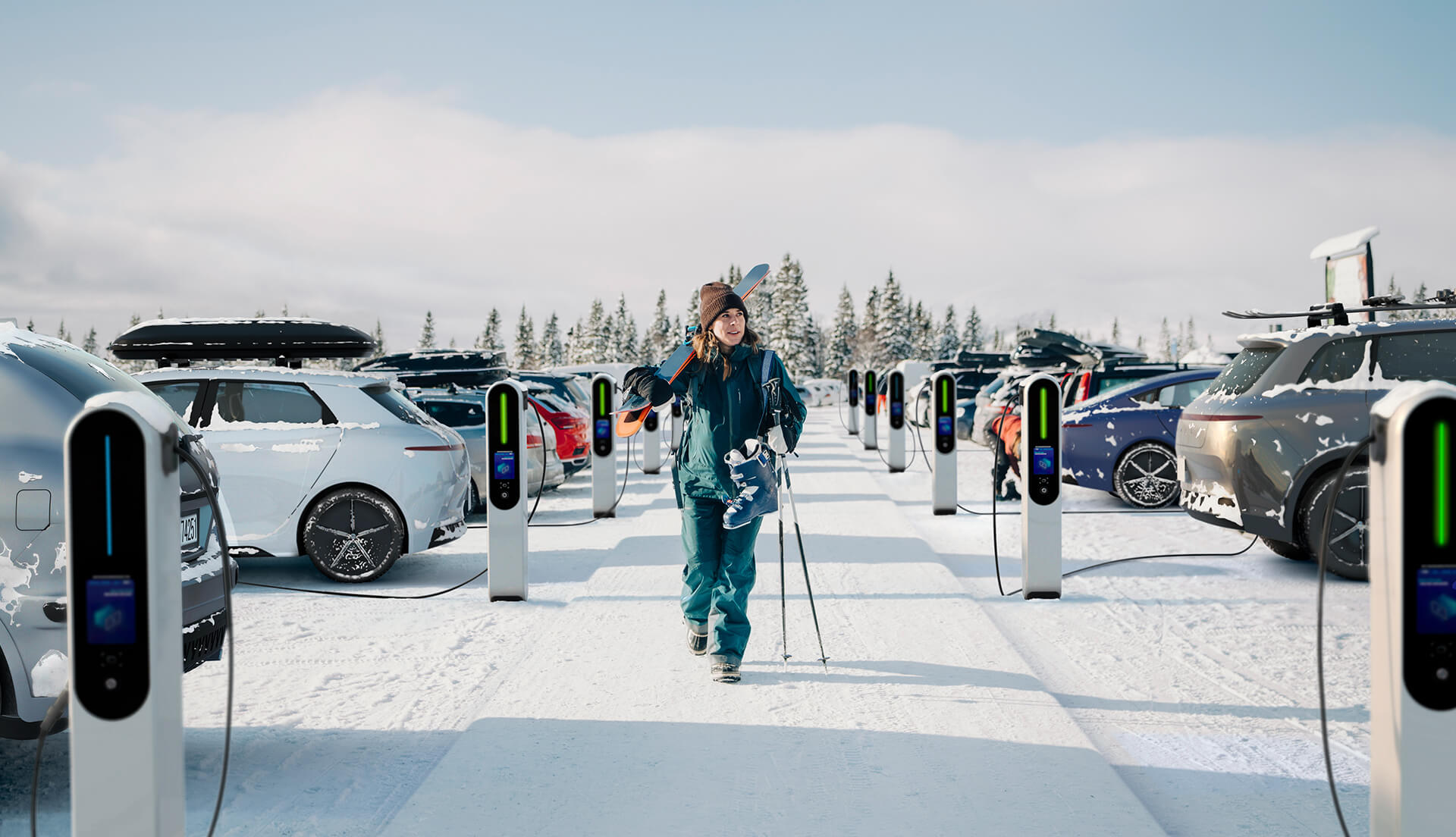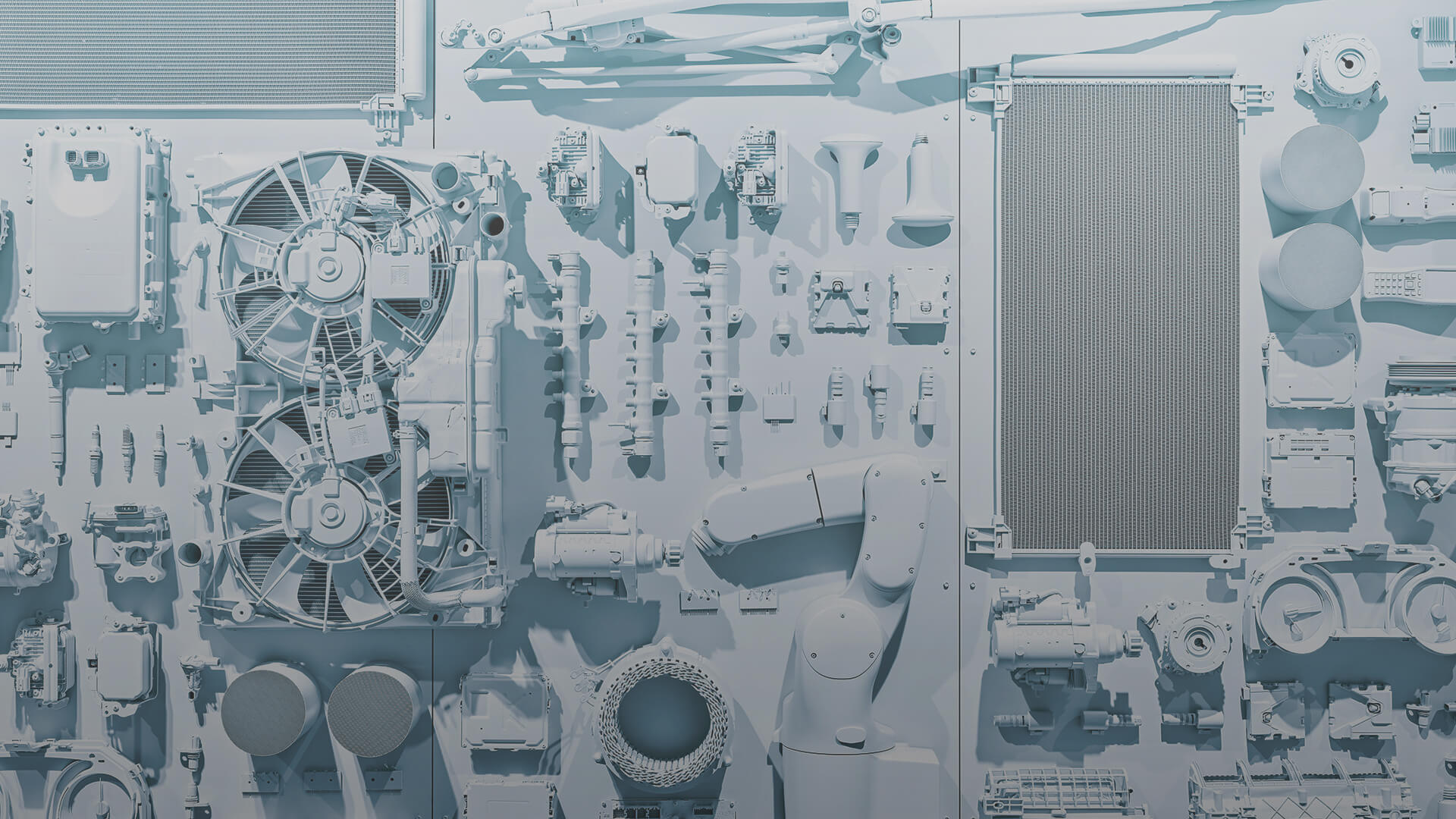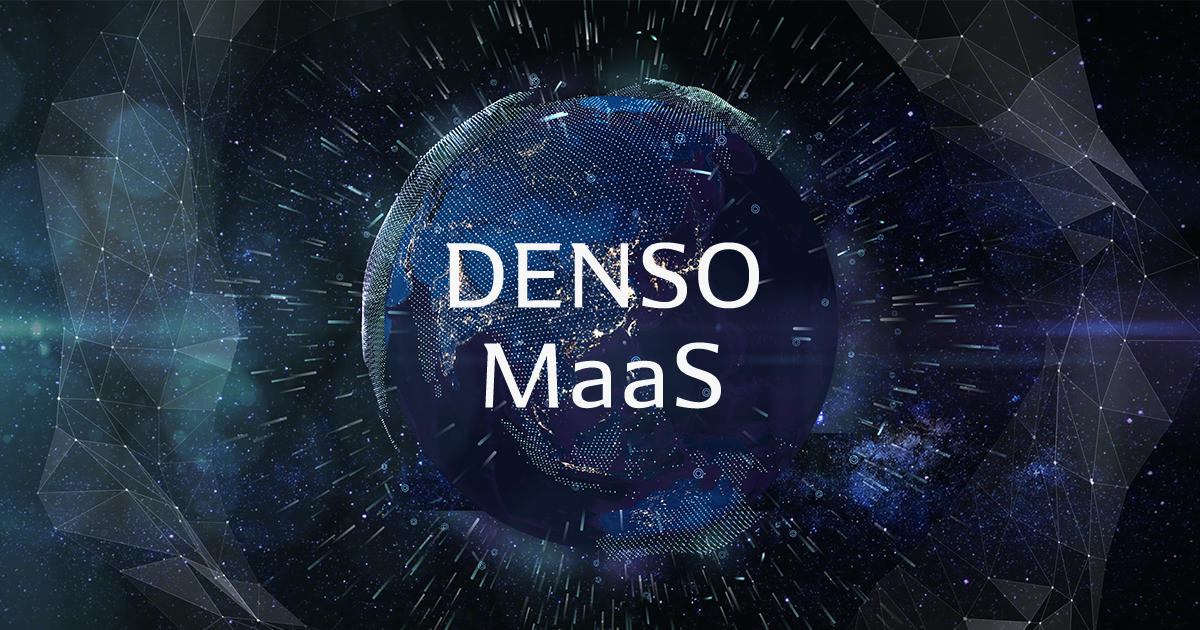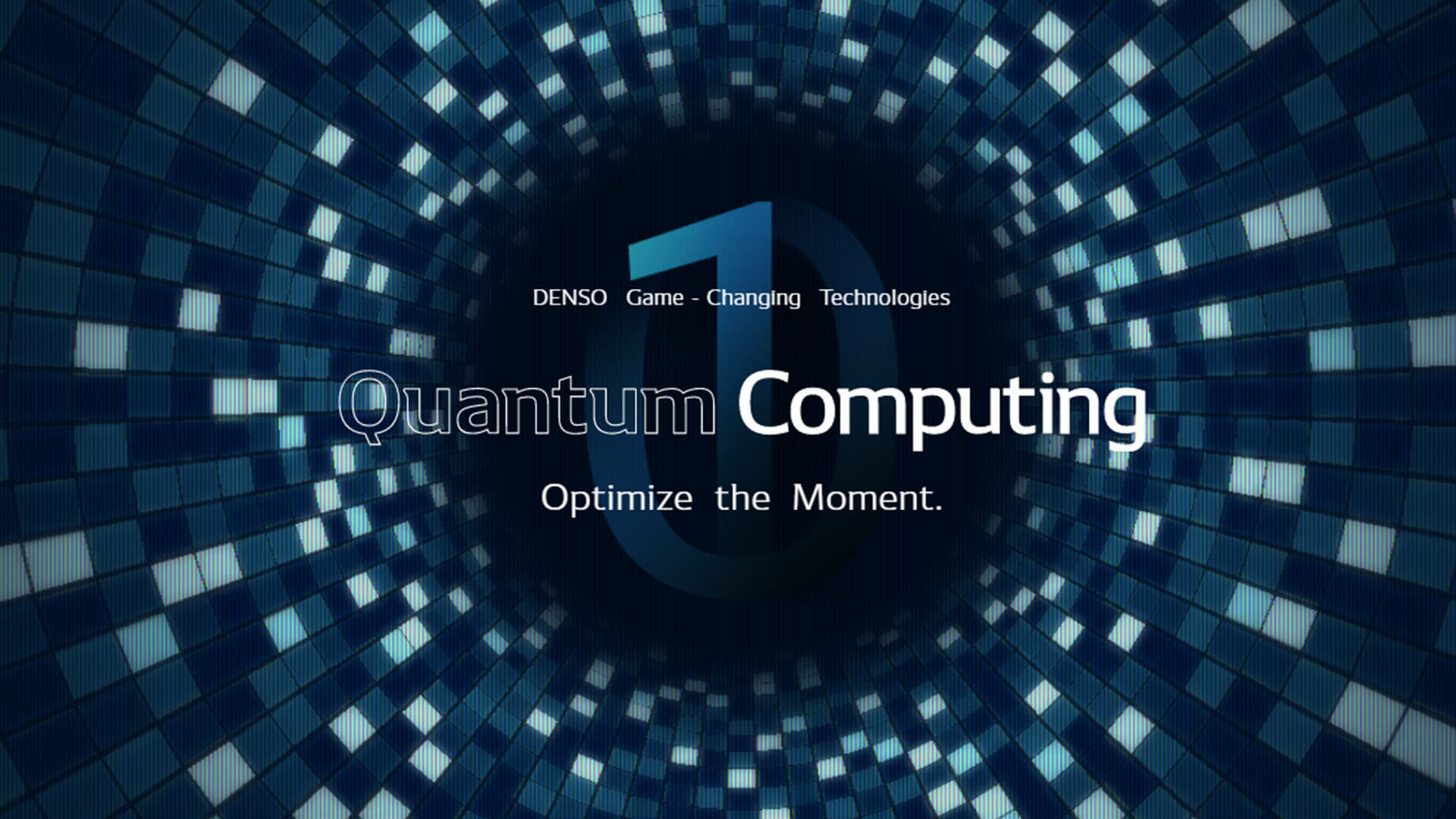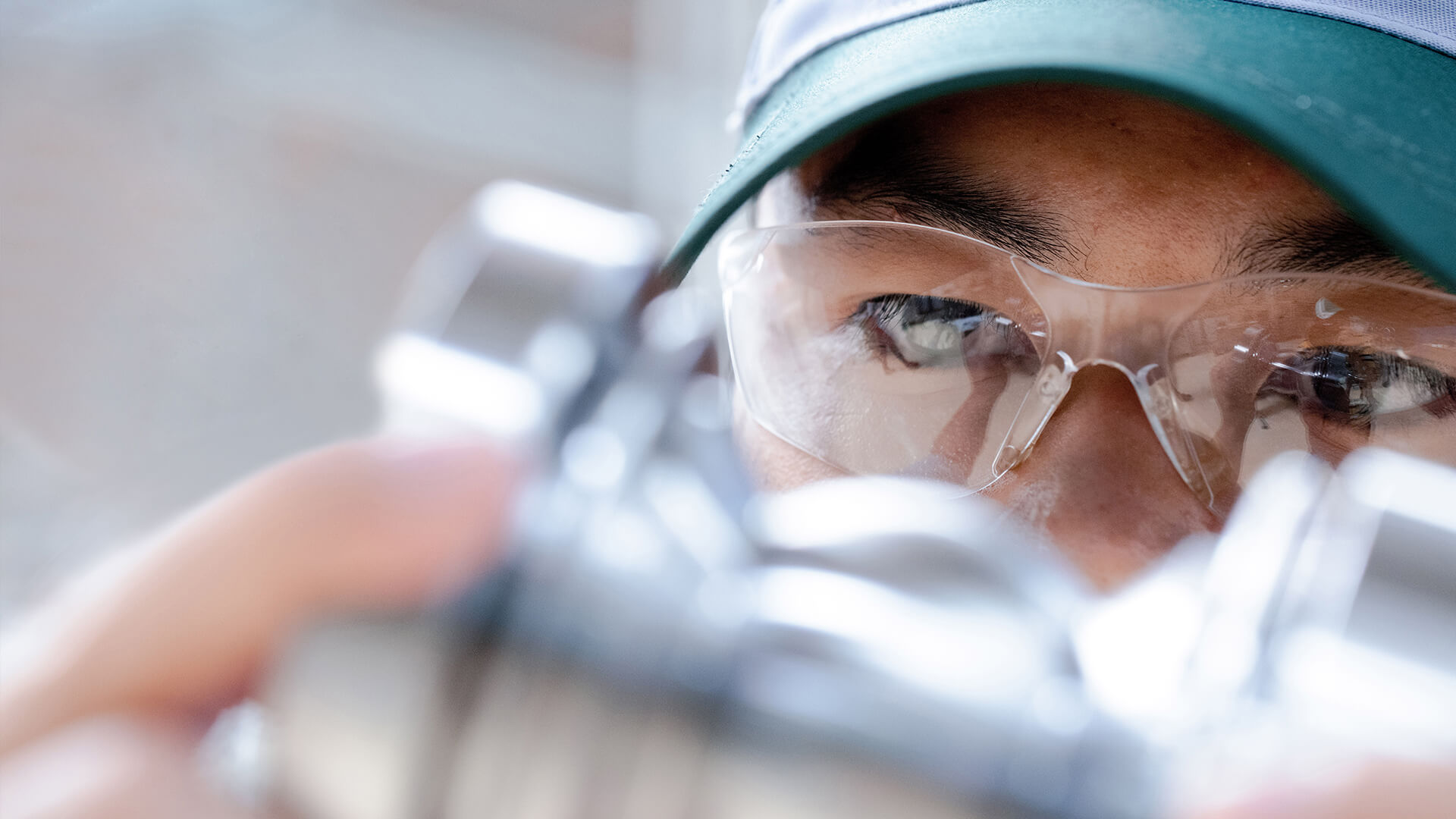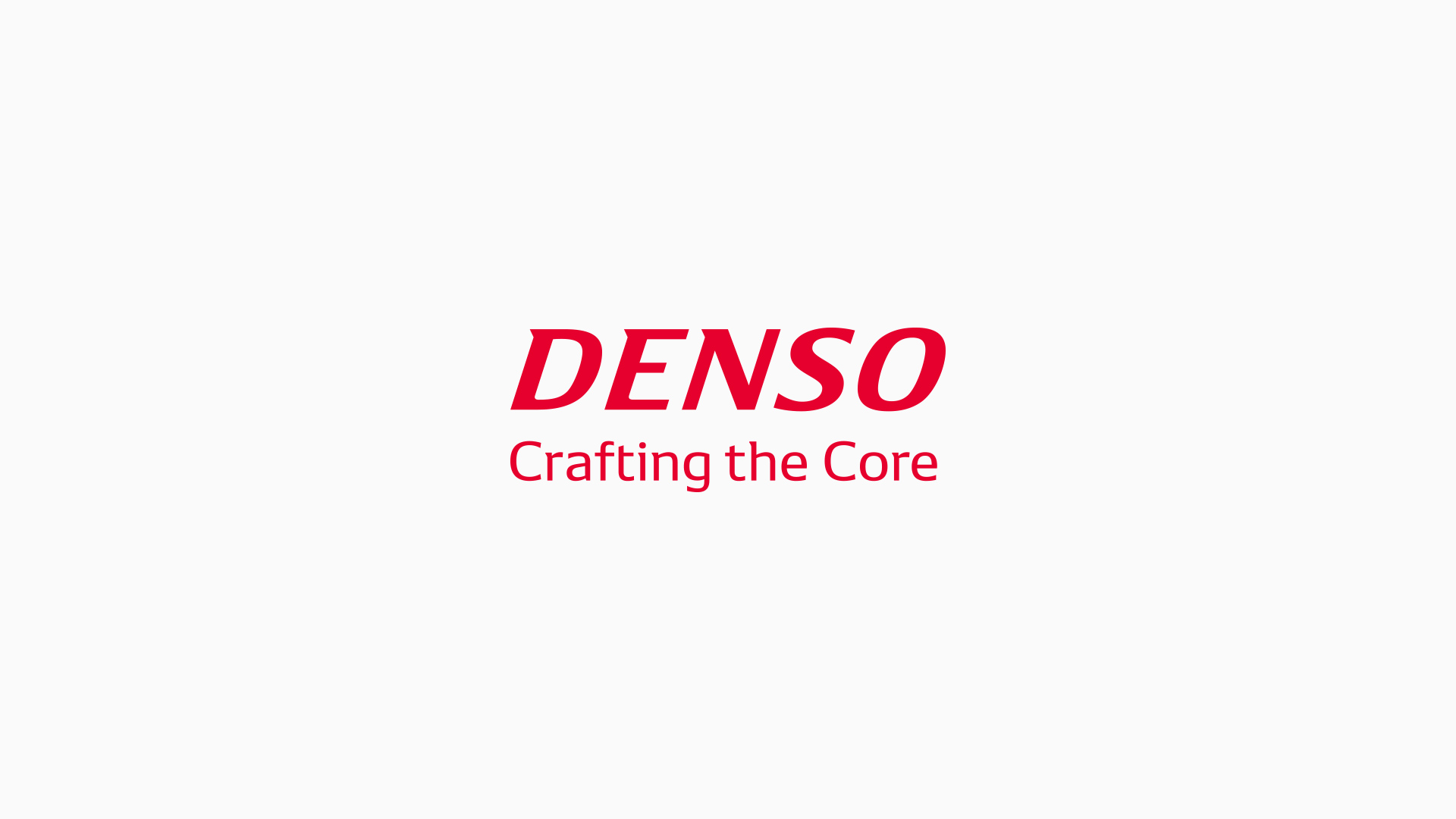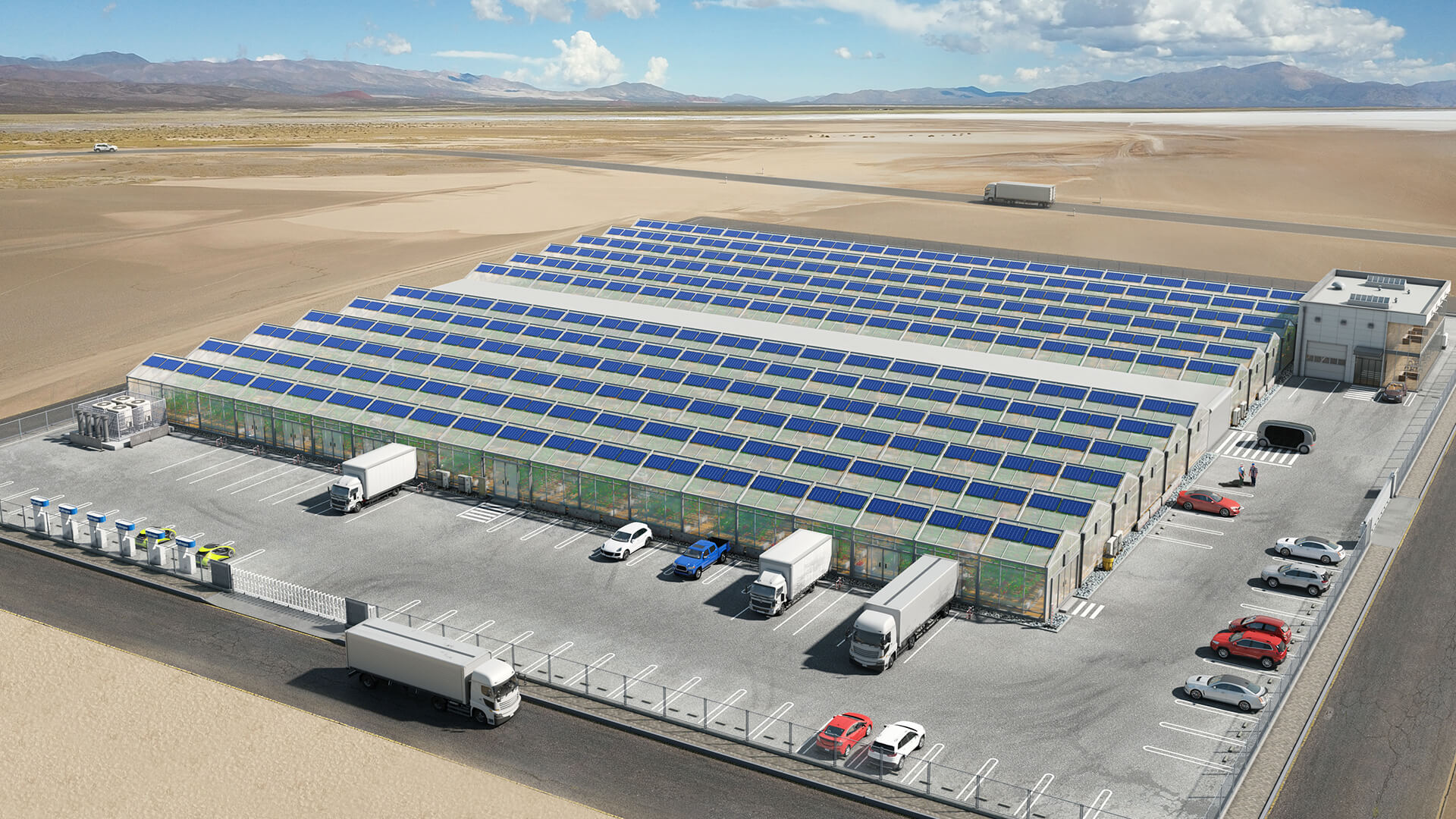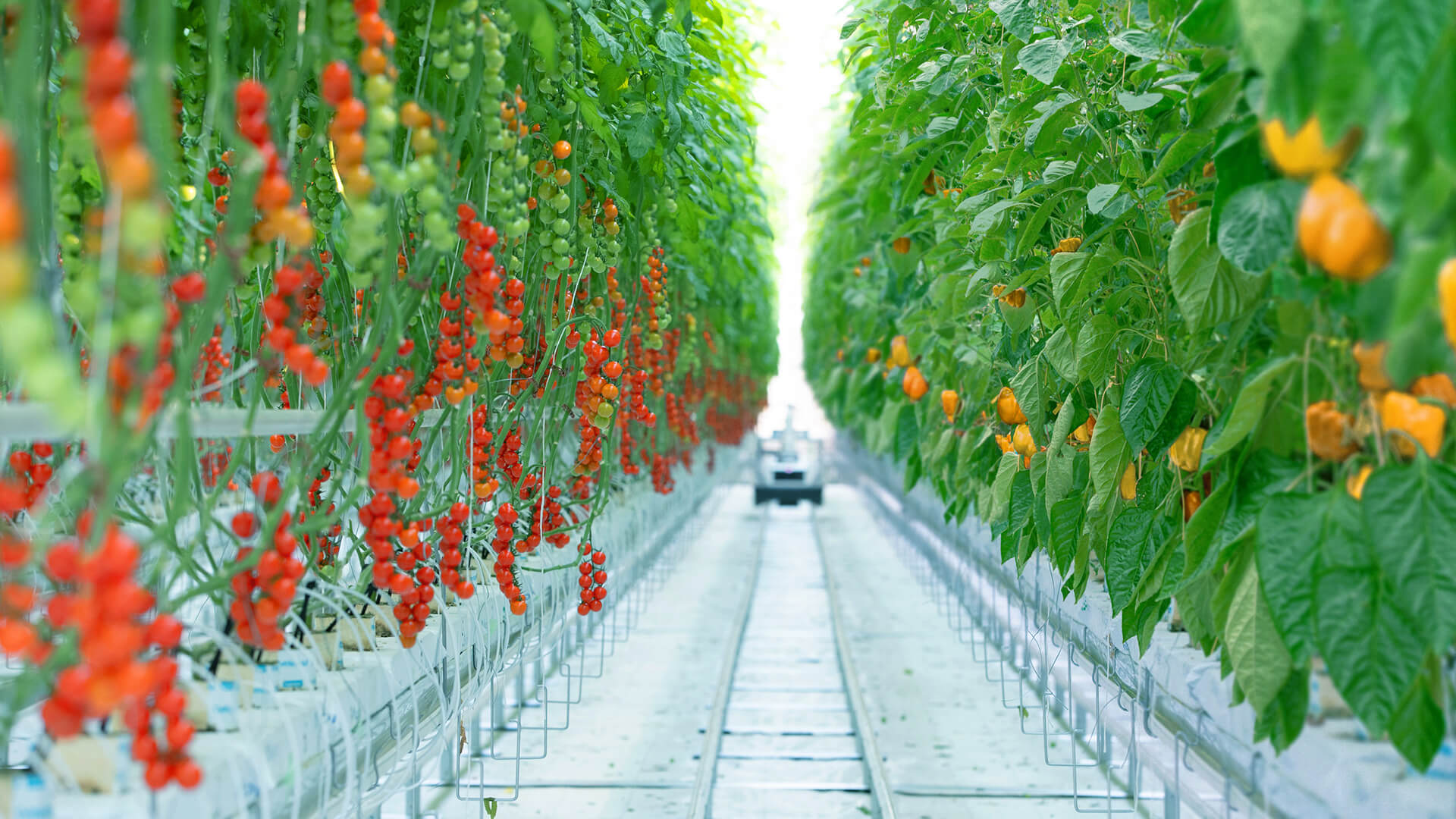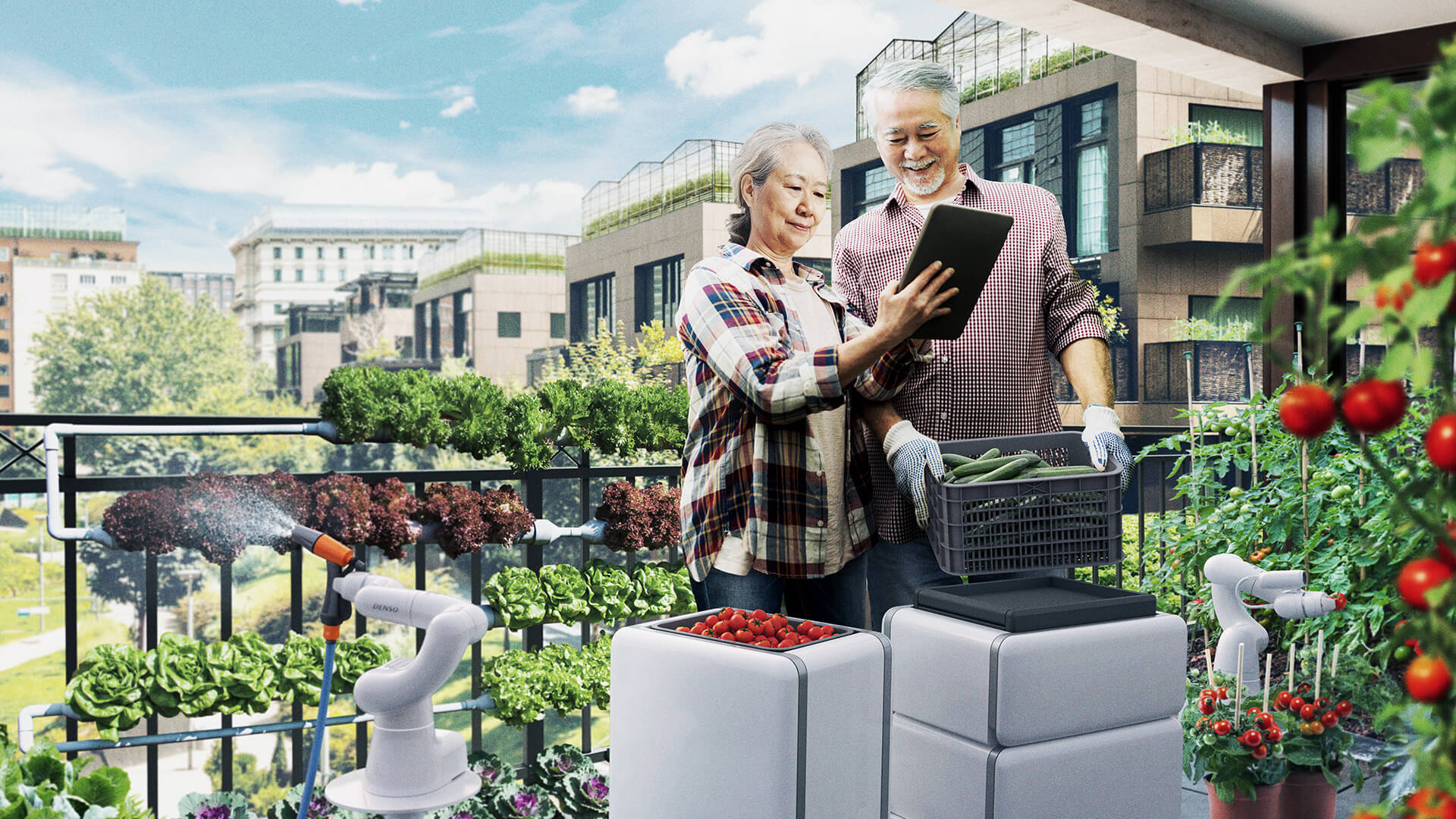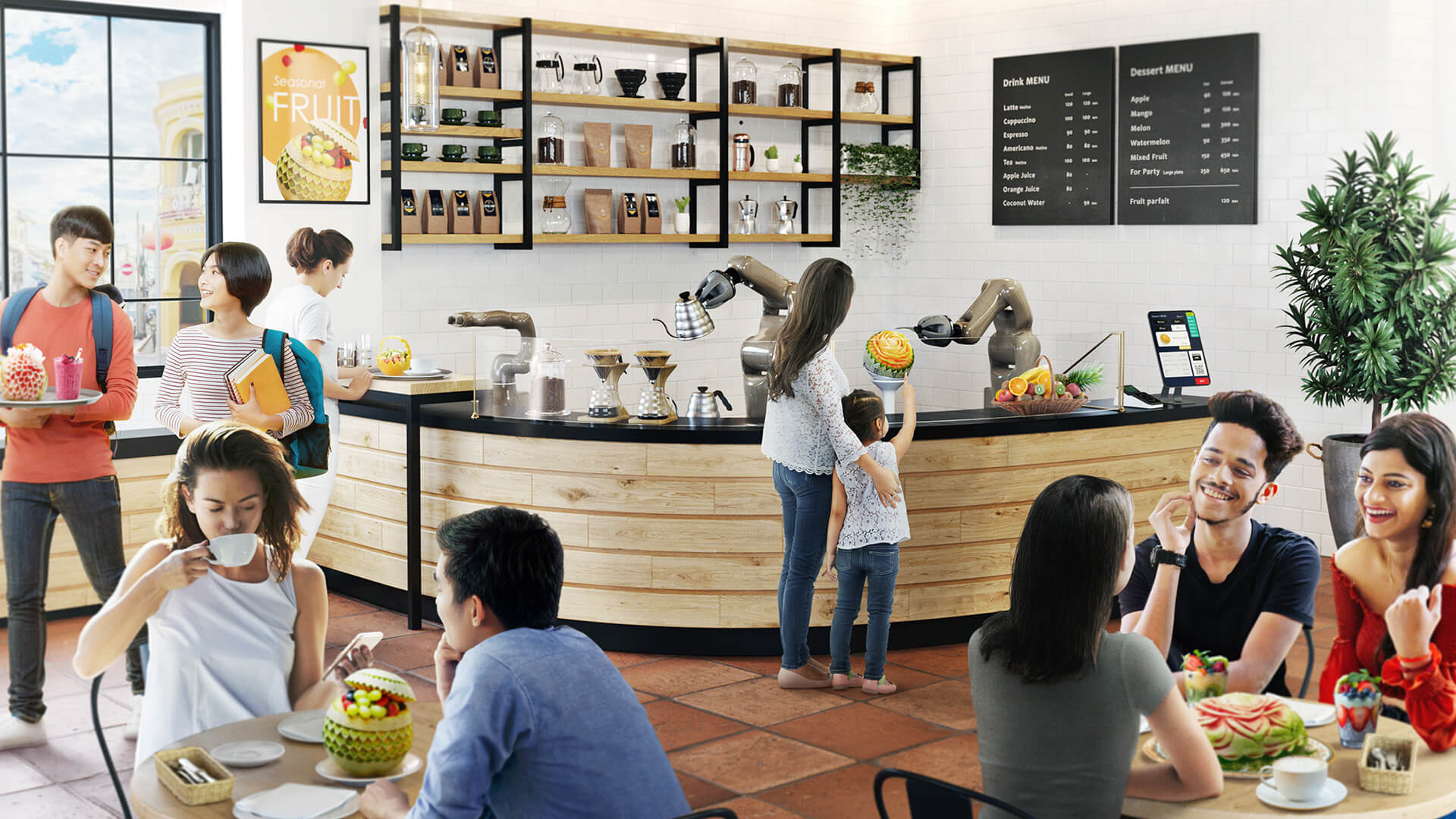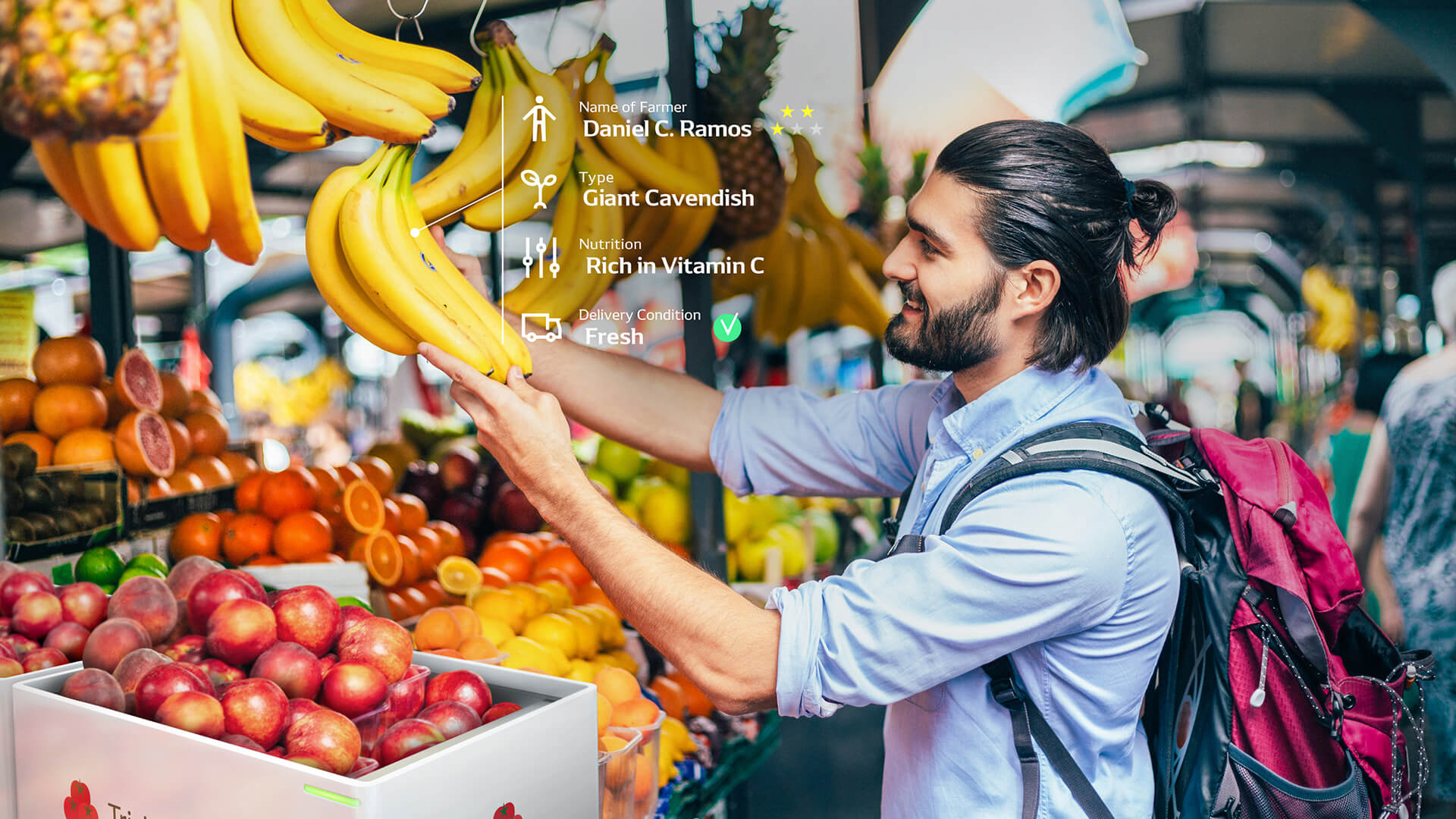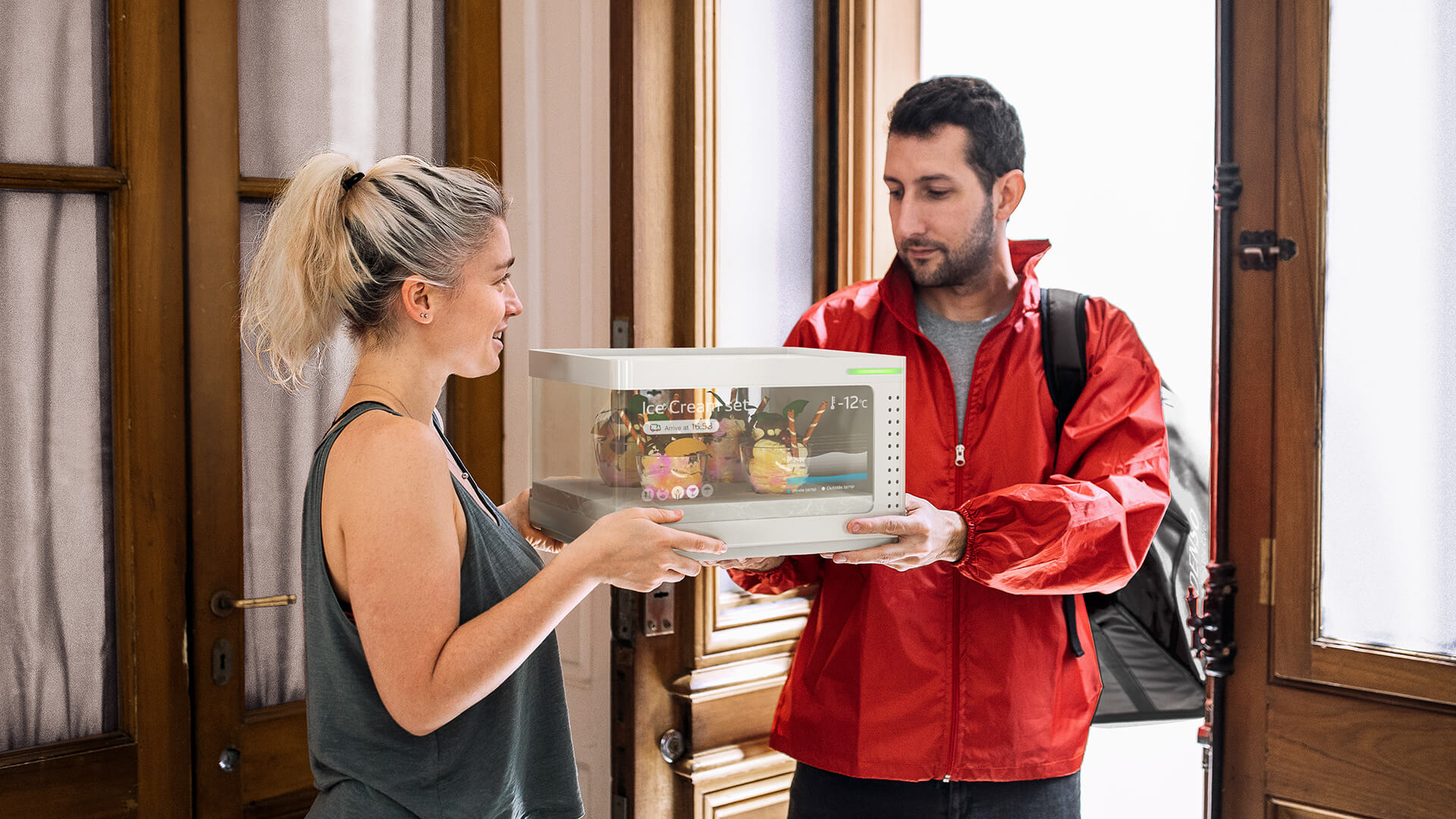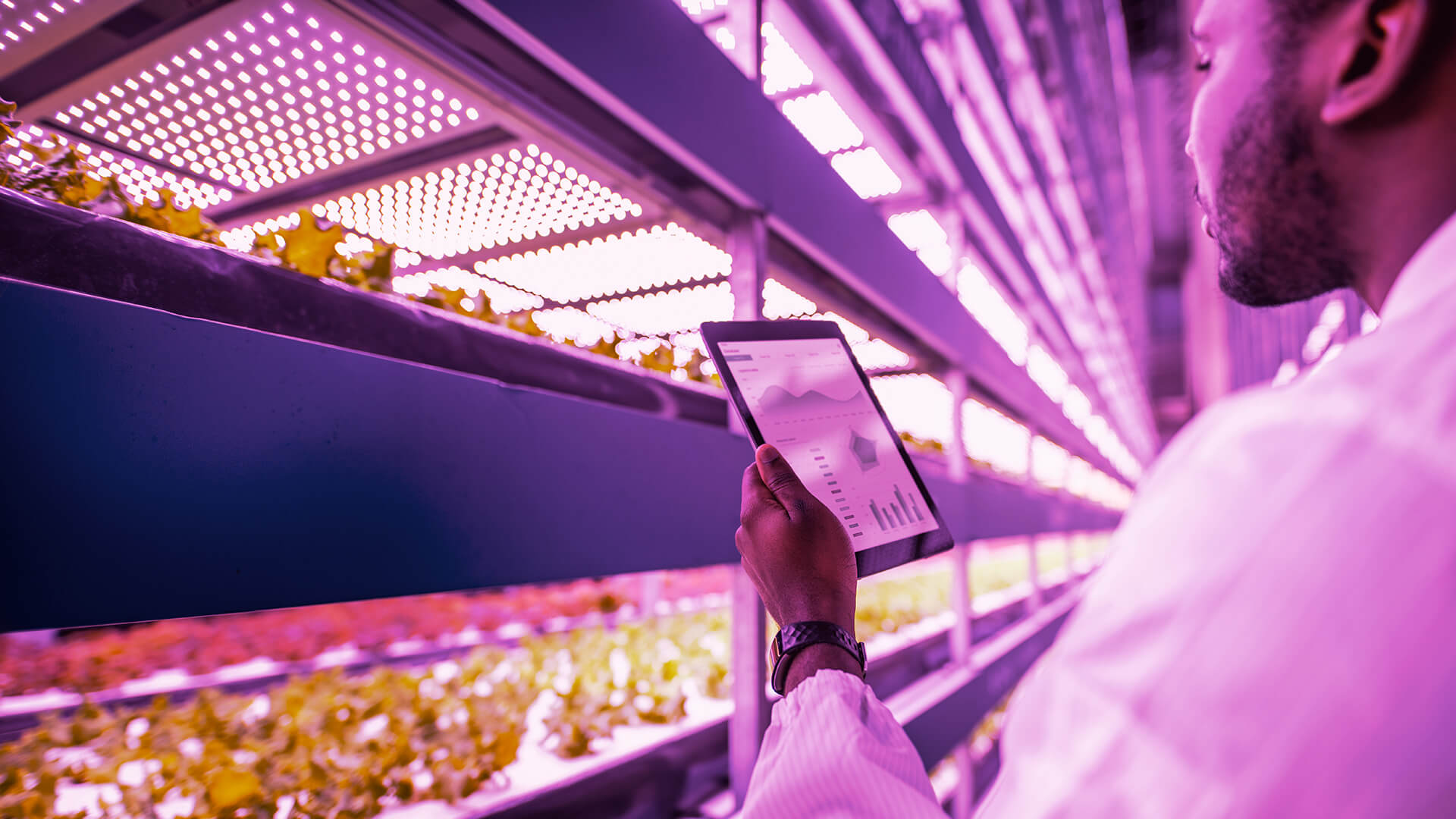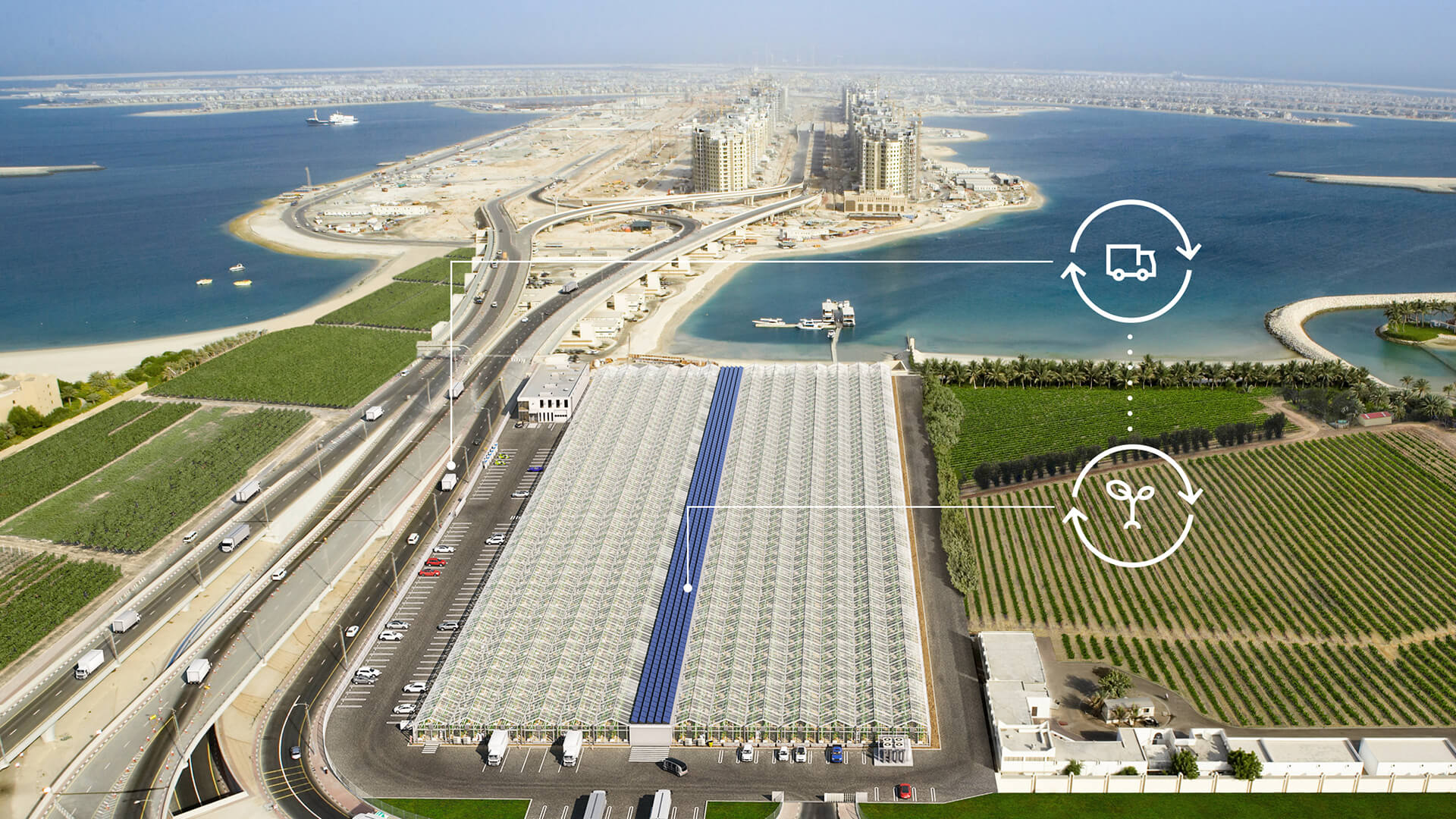
Food Well-being
Bringing positive change to food and agriculture
Bringing positive change to food and agriculture
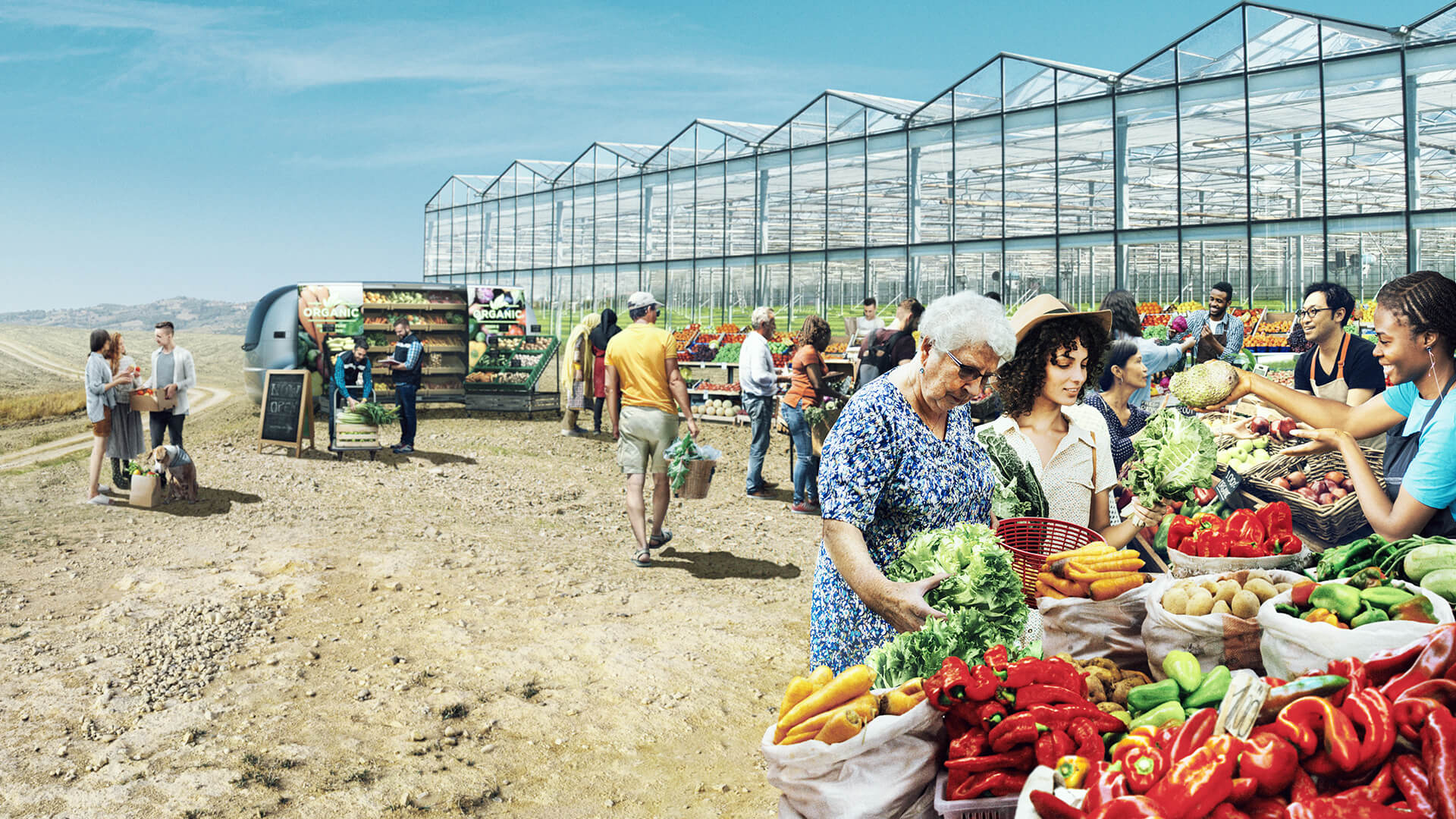
being Fair
Proper food for all people
Agriculture in the future won’t be affected by climate or location.
Even barren lands where nothing grows will flourish with crops.
Produce will grow through droughts and long periods of rain.
By industrializing agriculture, we aim to create environments that can withstand the forces of nature and ensure that all people receive the right amount of food with the right standard of quality.
Using new approaches that go beyond conventional thinking, we are developing solutions to address the world’s food problems.
Join us as we create a world where quality food can be enjoyed by everyone.
Solution
-
Proper food for everyone
DENSO's goal is to develop agricultural methods that are not influenced by climate or terrain. These methods would allow agriculture to prosper even in places that are typically considered unsuitable for farming: land that gets very little sunlight, arid deserts, or the roofs and balconies of buildings. Through our building-integrated agricultural solutions, we aim to transform any location into rich farmland.
-
Greater creativity in farming and cooking
Having too much food is unhealthy but so is having too little food. A badly balanced diet can affect our health. We want to provide people with the right quantity of food through greater farm productivity, as well as the right quality of food through nutritional supplements and increased food safety. We aim to develop preservation technologies and more efficient distribution methods that, together, will help us improve equal access to food.
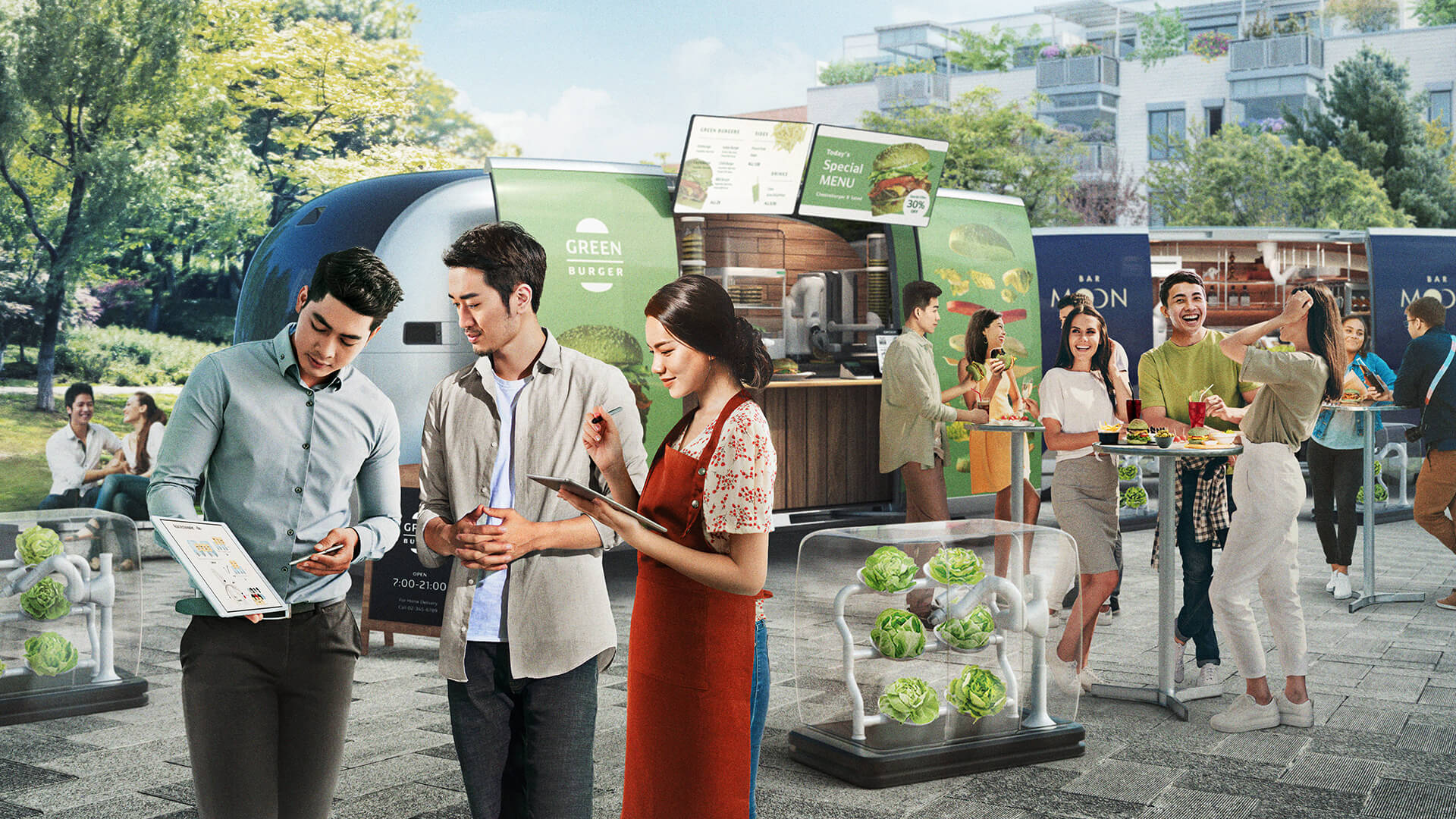
being Creative
Greater creativity at our farms and in our kitchens
To us, the farm is a breeding ground for nurturing producers’ ideas, and the kitchen is a stage for conveying the passions of culinary professionals.
The benefits that robots and AI bring to the farm and kitchen do not simply make it easier for people to work with food. They also expand the possibilities of what we can do with food, encouraging everyone to share their thoughts and ideas through culinary expression.
We want to achieve this reality so we can diversify the world of food.
The farms and kitchens of the future that will serve as canvases on which we can paint any idea we want.
Join us as we make working with food more fun than it has ever been.
Solution
-
Creating farms that inspire ideas
The act of creation provides our farmers with a potent source of joy. Yet, creating something on a farm requires a lot of work, and the rewards are always affected by fluctuations in the weather and market. At DENSO, we are developing systems that will allow farmers to entrust any part of the farming process to robots while facilitating their access to demand matching and AI-based cultivation support. We are also developing a platform that can respond flexibly to new challenges so that farms can transform into places where producers can sow their ideas and see them grow into fruition.
-
Building kitchens that celebrate passion
Perhaps no ingredient is more important to creating a delicious meal than passion—and our kitchens are making it easier for us to convey the passions of our culinary professionals. For example, advances in robotics will make it easier for factories to produce meticulously prepared, ready-made meals that are both tasty and healthy. Mobile restaurants and cooking robots that have acquired the skills of master chefs will bring fine dining to the masses. At DENSO, we want to convert kitchens into places that produce food with a healthy serving of passion.
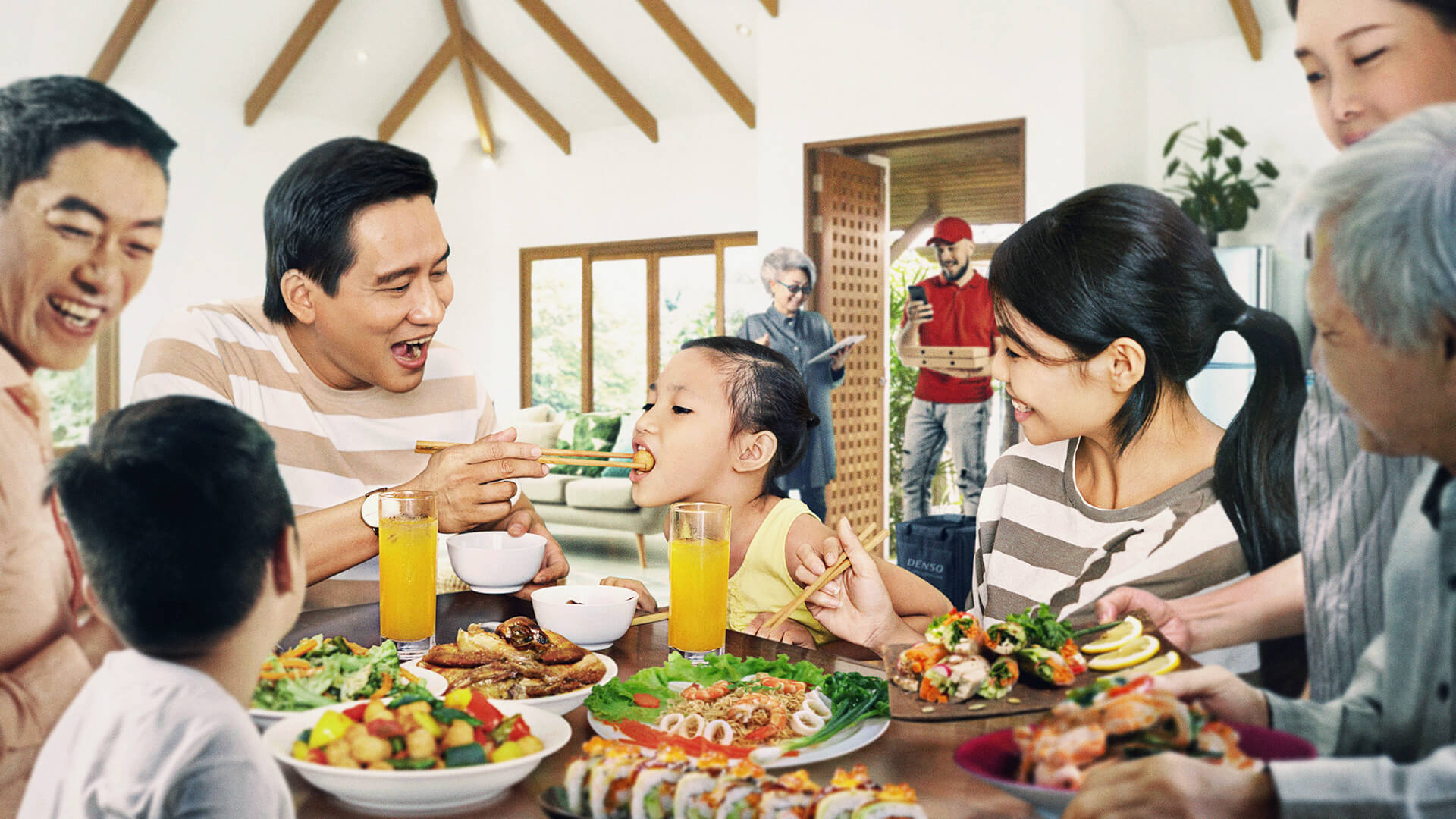
being Peaceful
Food you can trust on every dining table
We’re living in an age where any ingredient from around the world can be easily obtained. With so many options at hand, you want to be able to choose food that you can trust and have it delivered to you with uncompromised quality.
By developing a framework that visualizes the safety of your food and cold chain technologies that ensure the food is fresh when it arrives, DENSO makes it possible for every household to enjoy meals prepared from food they can trust.
Imagine every dish infused with the creativity of those who produced the ingredients and the distributors who delivered them to your table.
Joins us in our mission of perfecting the dining experience.
Solution
-
Safeguarding quality through transparency
Do you ever wonder about where and how an ingredient was produced, how its current quality is, or what process brought it to your home? Knowing the answers to these questions can put your mind at ease when deciding which ingredients to buy. Once consumers realize that they can demand more transparency in their food, producers, distributors, and wholesalers will begin placing more emphasis on food safety in their operations. By developing high-quality, easy-to-use solutions for managing and communicating data related to every stage in the food distribution process, we want to make the quality of our food more visible.
-
Delivering with uncompromised quality
Our food distribution needs are diversifying. Some people want ingredients delivered directly to their homes. Others want to visit markets and hand-select their choices, buy high-quality produce directly from farms, or have ingredients delivered to where they are right now. To ensure the quality of the delivered ingredients, the delivery process needs to be adapted to the consumer’s lifestyle. By improving the versatility of our cold chain technologies, we want to deliver food under any condition—and with uncompromised quality.
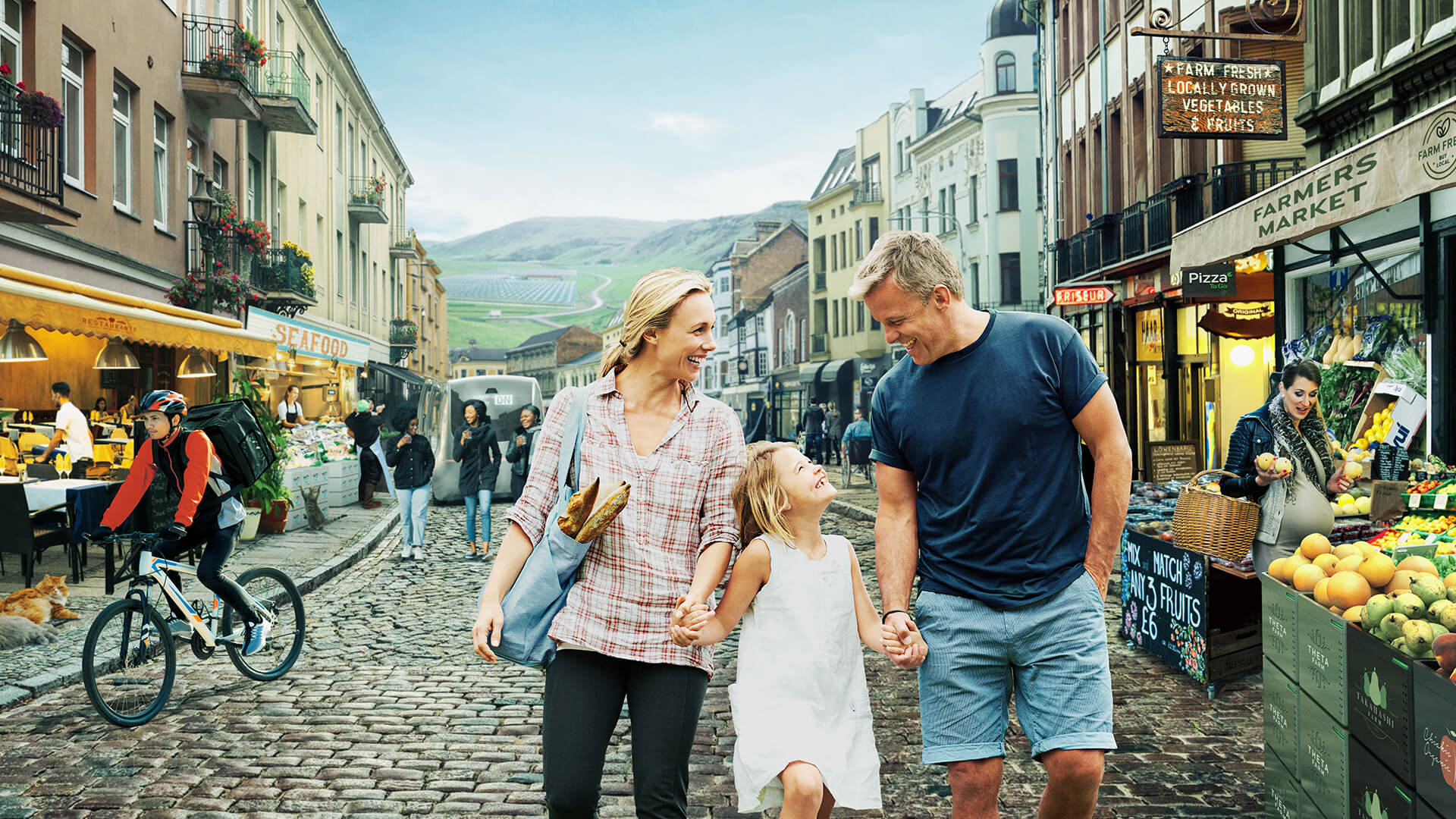
being Earth-friendly
A sustainable food cycle
We want to enjoy local delicacies and seasonal ingredients. We want to preserve our regional food cultures without losing them to climate change. We want to eat as much of the food we like, when we like. We want all this to continue even as populations grow and farmlands shrink.
To achieve this future, society must be able to recycle everything in the life cycle of its food, from the point when it is grown to when it is delivered and to when it is eaten. For example, by purifying soil and water used in agriculture and converting what is normally discarded into energy, we can practice a form of agriculture that does not burden the environment.
This kind of recycling holds the key to solving our food problems.
By linking every part of the food production process into a cycle, we can maintain our relationship with food without negatively impacting the Earth.
Join us as we create a sustainable food cycle.
Solution
-
Minimizing food loss
About a third of our food is believed to go to waste without being eaten. To reduce such waste, we want to run our agricultural business using the same, just-in-time manufacturing methods we have successfully employed in our car manufacturing business. This will involve combining distribution and market data to predict when and where need will arise for various ingredients and then control distribution and production volumes based on that forecast. We are also looking to incorporate factory automation to reduce waste in our food processing operations, for instance by discarding just the parts of the ingredient that look spoiled or damaged before using them. Such decisions will help us minimize the amount of food loss that occurs in our food production.
-
Creating an ecosystem
Climate change has had a serious impact on our food culture; for example, some regions can no longer produce the food for which they were once known. Meanwhile, the overuse of pesticides and irresponsible waste management have destroyed a lot of land suitable for agriculture. This is why DENSO is dedicated to promoting agricultural practices that are environmentally friendly, such as using resources efficiently, incorporating reusable energy, and recycling waste. By connecting farms to everyone involved in the food life cycle, we seek to create an even more far-reaching recycling network—a sustainable food ecosystem.



